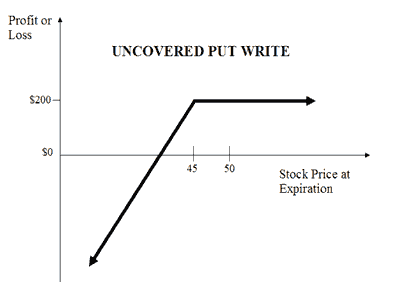

A feature of provisions tends to be there is uncertainty over timing or amount . Provisions are also made only if the good & services have been received and the liablity has accrued. Existence of liability in the case of provisions is not entirely certain but is probable and is depending on the occurrence or non-occurrence of certain events. Accruals and Provisions are concepts in Financial Accounting that are used in different types of situations.
- Financial ReportingFinancial reporting is a systematic process of recording and representing a company’s financial data.
- The subject of this discussion is when to recognise an accrual for bonuses and when a provision.
- If companies incurred expenses (i.e., received goods/services) but didn’t pay for them with cash yet, then the expenses need to be accrued.
- Government has legally mentioned the company to be owner of oil well till 2047.
- Well, I would say that you should have taken the interest into account when measuring your provision at the end of 2017 – as soon as you believed that time that you will be liable to pay also the interest.
Till the time it can be said with certainty that the dues will be defaulted on, a provision can be made in the books of M/s XYZ for the probable loss. Insurance PremiumInsurance Premium is the amount paid by any individual or a corporate entity to cover themself from uncertain events resulting in heavy economic and non-economic losses. ExpensesAn expense is a cost incurred in completing any transaction by an organization, leading to either revenue generation creation of the asset, change in liability, or raising capital.
If a customer paid for the purchase of goods and services in advance, this would be recorded as a prepaid income. In this case, even though the customer paid early, they have not received the product yet and therefore the company cannot record it as an income. This is a significant accounting problem because it presents an incorrect financial picture of the company. The Accrual Principle is a concept in Accounting where the financial transactions are recorded during the same time period in which they occur, however the actual cash flow may occur at a later stage. For example, suppose a company supplies goods worth $50,000 in the first quarter of financial year, but the company receives the payment in the second quarter. In such a case, if we apply the Accrual Principle, then the company will record this financial transaction in its books in the first quarter itself.
Difference between Provisions and Accruals
The accruals are made via adjusting journal entries at the end of each accounting period, so the reported financial statements can be inclusive of these amounts. In order for an organization’s financial statements to include these transactions, accrual-kind adjusting entries are needed. Some of these accounting changes are meant to be reversing entries – that’s, they are to be reversed as of the start of the following accounting period.

At 31 December 20X8, the legal advisors of Rey Co now believe that the $10m payment from the court case would be payable in one year. We undertake various activities to support the consistent application of IFRS Standards, which includes implementation support for recently issued Standards. We do this because the quality of implementation and application of the Standards affects the benefits that investors receive from having a single set of global standards. I assume that a accrual is where a transfer or economic benefits is certain to occur but a provision is used when a transfer of benefits is definite. That which is stipulated in advance; a condition; a previous agreement; a proviso; as, the provisions of a contract; the statute has many provisions.
Standard history
The key precept established by the Standard is that a provision ought to be recognised solely when there is a legal responsibility i.e. a gift obligation ensuing from previous events. The use of accrual accounts tremendously improves the quality of data on monetary statements. Once, the taxpayer has claimed these expenses by debiting in profit and loss account, it needs to withhold tax on such expenditure, even if not credited to respective vendor account. These are deducted from the relevant accounts’s closing balances on balance sheet date. • Accruals are made for expected revenues, as well as expenses, and provisions are only made on behalf of expenses predicted. • Accruals and Provisions are essential as they show the company’s stakeholders the types of revenues and expenses expected by a firm, and help the company managers in decision making and planning.
Revenue is the amount of money that a business can earn in its normal course of business by selling its goods and services. Bonuses that are not stipulated in employment contracts do not give rise to a legal obligation, but may result in a constructive obligation. If the entity for example has a history of paying bonuses every year and by doing so created a valid expectation that they will continue to pay annual bonuses, they have a constructive obligation to pay bonuses. Government has provided a company right to extract oil from and offshore oil well for 25yrs from 2022. Government has legally mentioned the company to be owner of oil well till 2047.
Using the accrual method, an accountant makes changes for revenue that has been earned but isn’t yet recorded in the basic ledger and bills that have been incurred but are additionally not but recorded. For accrued expenses, the journal entry would involve a debit to the expense account and a credit to the accounts payable account. This has the effect of increasing the company’s expenses and accounts payable on its financial statements. Expenses of the current year, for which payment has not yet been made are recognized and charged to the profit and loss account for the current accounting period. The word “Accrual” can be explained as revenue and cost are accrued i.e., they are recognized as earned or incurred and entered in the books of accounts for the period to which they relate.
Accrued revenues is money the company will acquire at the end of a stipulated time, such as money owed to the company by clientele. The accruals are made via adjusting journal entries on the end of every accounting period, so the reported financial statements can be inclusive of those amounts. For example, a company with a bond will accrue interest expense on its monthly financial statements, although interest on bonds is typically paid semi-annually. The interest expense recorded in an adjusting journal entry will be the amount that has accrued as of the financial statement date.
DebitedDebit represents either an increase in a company’s expenses or a decline in its revenue. Financial InstitutionsFinancial institutions refer to those organizations which provide business services and products related to financial or monetary transactions to their clients. “Provision” is a dangerous word to use in attempting to realize clear communications in conversations with U.S. and IASB conversations. In financial accounting, a provision is an account which data a present legal responsibility of an entity. The recording of the liability in the entity’s steadiness sheet is matched to an acceptable expense account within the entity’s earnings statement. Accrued revenues refer to the recognition of revenues that have been earned, but not yet recorded in the company’s financial statements.
The Provision means to keep some money for a known liability which is probable to arise after a certain time. The Reserve is to retain some money from the profit to for any particular future use. The amount of provision cannot be used to pay off dividends, but the amount of the reserves can be used for so. If you applied the standard IAS 37 correctly in measuring your provision and the actual provision turns out to be different for various reasons, then you do NOT restate the financial statements for the previous period.
Contingent liabilities also include obligations that are not recognised because their amount cannot be measured reliably or because settlement is not probable. At the end of the reporting period you should measure a provision as the best estimate of the expenditure to settle the obligation. Provisions are reservation accrual vs provision of certain amounts as a safety buffer from the profits, meant for meeting expenses or future losses in future. A credit transaction occurs when an entity purchases merchandise or services from another but does not pay immediately. They act like a rainy-day fund, based on educated guesses about future expenses.
Each member of the RSM network is an independent accounting and advisory firm each of which practices in its own right. The RSM network is not itself a separate legal entity of any description in any jurisdiction. Therefore, the payment characterization depends on the company’s interpretation, i.e., provision or expenditure accrual. Regardless, the cash flow statement would give a true picture of the actual cash coming in, even if the company uses the accrual method. The accrual approach would show the prospective lender the true depiction of the company’s entire revenue stream.
A fool-proof marketing strategy for accountants
Accruals are accounted for as per the ‘matching’ concept principle of accounting – in which expenses must be accounted for and matched with the incomes and the period to which they pertain. Accruals involve recording of expenses that have been incurred but payment for which is yet to be made by the transacting entity. A provision, on the other hand, are quite uncertain for any business but are not totally uncertain hence the provision is made by businesses to hedge any future potential losses in the business.
Leggett & Platt Incorporated : Company Update March 2023 – Marketscreener.com
The RSM network is administered by RSM International Limited, a company registered in England and Wales whose registered office is at 50 Cannon Street, London, EC4N 6JJ. Dear Joe, normally not, because indeed, there’s no past event, so it’s not a typical provision under IAS 37. However, according to best practices, you should take consistent approach to expenses for audit. In some countries and companies, they book the expense to 2017 as the audit relates to the year 2017. In other countries, they book the expense to 2018, as the service itself is provided in 2018 and you consume the benefit of this service only in 2018.
AccountingWEB Events
While there are several points of differences between accruals and provisions, both are accounted for only in mercantile system of accounting and not in cash basis of accounting. Accruals are made almost daily to account for various expenses incurred by a business whereas provisions are only made when certain special circumstances indicate the probability of a loss occurring. Whereas a reserve is part of a business’s profit, a provision is intended to cover upcoming liabilities, set aside to improve the company’s financial position through growth or expansion. Companies may have different provisions, such as building provision for depreciation, Provision for future loss on the sale of assets, and provision for debtors, which can be expected to go bad and doubtful. Companies show both accruals and provisions on their financial statements, which helps them to better manage their finances. Organizations use provisions to prepare for future contingencies by setting aside a specific amount of money.
The IFRS Foundation is a not-for-profit, public interest organisation established to develop high-quality, understandable, enforceable and globally accepted accounting and sustainability disclosure standards. Any difference between the amount of the provision and the final settlement amount is recognized in profit or loss in the period when the settlement happens and you use the provision. Its accountant records a deferral to push recognition of this amount into a future period, when it will have provided the corresponding services.
However, I will appreciate if your examples and elaborations are based on financial institutions mainly banks as they deal with provisions frequently. The future operating losses can be avoided by some future actions, for example – by selling a business. The amount of the provision should be measured at the best estimate of the expenditures required to satisfy the obligation at the end of the reporting period. Accruals improve the quality of information on financial statements by adding useful information about short-term credit extended to customers and upcoming liabilities owed to lenders. For some ACCA candidates, specific IFRS® standards are more favoured than others. However, IAS 37 is often a key standard in FR exams and candidates must be prepared to demonstrate application of the criteria.
IAS 37 also clarifies which type of expenses can / cannot be included in the provision. You should recognize the interest in profit or loss and it also increases the amount of a provision. For example, when you promised a free warranty service for defective products at the point of sale, then you have a present obligation. If your past statistics show that you needed to spend some cash for warranty repairs, then you need to make a provision. The amount of economic benefits required to satisfy the obligation must be reliably estimated. Therefore, many companies utilized so-called “big bath provisioning” in order to smooth profits.

